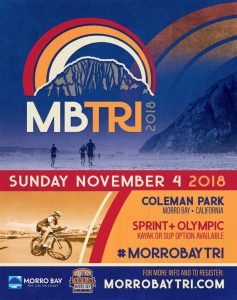
Each venue works a little differently. Some will bend over backwards to have you there. Some will fight you every step of the way. Some will be cheap, some expensive. Some will be a free-for-all and some will be rigid and rule-oriented. The key is speaking their language.
Once you have determined dates, general course needs, and the ideal location, it’s time to start inquiring about specific locations.
There are a number of options out there:
Scout public locations on your own before you escalate. People appreciate it when you’re already familiar with their property and what you want to do with it. The more detail and preparation you can show upon meeting the managers, the better.
Go directly to the land management agencies in charge of a venue you are already aware of. Set an appointment to meet with them, talk about what you want to do, and tour the course. You may not be as prepared when you meet, but you may not have many options if the land is private or hard to access.
Contact tourism boards in the area for recommendations. Generally, they will tell you of possible venues or put out the call for you. You’ll receive solicitation from the venues interested.
Get on the Internet. If you need something like a park or ski hill, you’ll find it easily this way. Google Earth is your friend.
Network. There are private venues out there that you can only find through friends.
Once you’ve got a couple of ideas in mind for your venue, it’s time to meet with the principals involved. Some land managers have done this all before and will know ahead of time what you can and cannot do by their own policy or by local jurisdiction. It’s awesome if they do, but don’t always assume they will know. Depending on what you want to do on the land, and the experience of the land managers you meet with, you may have to do some follow-up research with the government or additional land managers to determine if the site will work for you.
Consider meeting with land managers a job interview. You will need to sell yourself as a professional (as you see yourself), your attire, demeanor, and preparation will matter. We’re not saying to wear a suit, but “business casual” with the ability to do some hiking is appropriate. Don’t be distracted, defensive, or unprepared.
As a rule of thumb, there are three ways to impress people: connection, history, and facts.
Some people are highly influenced by the connections you have and the connection you forge with them. If you encounter someone like this, they will likely engage in small talk. Always look for ways to find common ground and people in your lives. They need to feel as though they can trust you. If you are not comfortable with this, there are tons of sales books that can advise how to get better at that instant connection. Remember, you are selling yourself with this person.
Some people don’t care about you, but they do care about your credentials. How long have you been in business for? What can you show in terms of your ability and work ethic? Even if this is your first event, you can shine with these people by being prepared with a general plan and even anecdotes about how you have handled things in the past. Some people simply believe that if you can outlast others, you’re worth paying attention to. Finding a way to dig into your past means extending your experience beyond that first event.
So did you like this? Bet you’re going to LOVE our book!




 Born out of people constantly asking us how to get started, All Out Events poured their almost 20 years into diverse event production into this little baby. The second edition has even more information, new images, and updated ideas!
Born out of people constantly asking us how to get started, All Out Events poured their almost 20 years into diverse event production into this little baby. The second edition has even more information, new images, and updated ideas!
